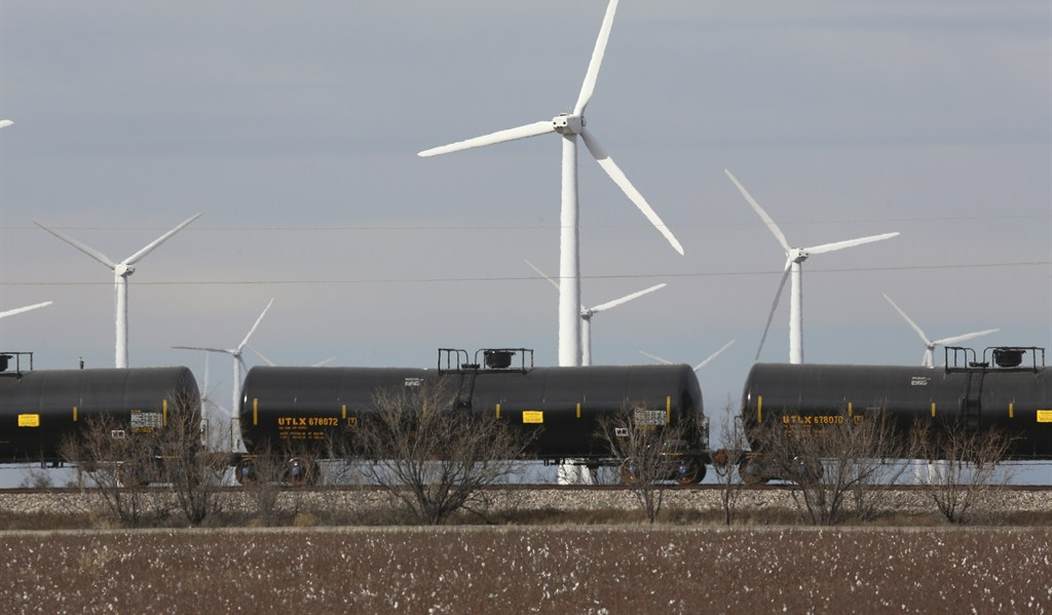Imagine the theory of gravity being determined by a partisan vote. Or a group of politicians ruling on interpretations of the laws of modern physics. As bizarre as those propositions sound, that is what is happening in climate science.
Scientific research is done predominantly in academia, where truth is supposedly established through years of work that is financially supported by government or private entities. Sometimes, the financiers of research desire particular outcomes for their money.
Human nature being what it is, ulterior motives creep into researchers’ methods and results when scientists applying for grants and working in laboratories discover the point of view of their funding sources. A sort of predeterminism arises where the funder’s interests are given priority over time-proven scientific methodologies.
There are large factions of politicians and scientists committed to a baseless narrative that emissions of carbon dioxide from human activity are leading to an apocalyptic warming of Earth. With the enthusiasm of religious zealots and the ruthlessness of the power-mad, a climate industrial complex is driving energy policy on the basis of a hundred or so badly flawed computer models. More than 95% of these digital prognosticators have proven unreliable in predicting climatic trends. Yet they are used anyhow.
In simple terms, the models are designed to exaggerate the potency of atmospheric carbon dioxide as a greenhouse gas. Consequently, the models overstate future warming. The magnification of forecasted warming is revealed by retrospectively comparing model results to actual, historical temperatures.
A 2020 scientific analysis revealed that “models overpredict warming in every target observational analog, in most cases significantly so, and the average differences between models and observations are statistically significant.”
Scientist Ross McKitrick calls out errors of modelers that exaggerate future temperature increases.
“I get it that modeling the climate is incredibly difficult, and no one faults the scientific community for finding it a tough problem to solve,” writes McKitrick. “But we are all living with the consequences of climate modelers stubbornly using generation after generation of models that exhibit too much surface and tropospheric warming, in addition to running grossly exaggerated forcing scenarios.” (Forcing is the mechanism by which greenhouse gases warm the atmosphere.)
“Back in 2005 in the first report of the then-new U.S. Climate Change Science Program, (others) pointed to the exaggerated warming in the tropical troposphere as a ‘potentially serious inconsistency,’” McKitrick says. “But rather than fixing it since then, modelers have made it worse. (The report writers) note that in addition to the wrong warming trends themselves, the biases have broader implications because ‘atmospheric circulation trends depend on latitudinal temperature gradients.’”
Why do researchers continue to use models that are known to exaggerate warming? To produce outcomes that support a view politically popular with the climate obsessed?
It would seem so, given the profit motive and the lucrative nature of the current pernicious cycle: Governments advance their doomsday narrative, scientists and research institutions get grants, the green lobby secures investments and subsidies for uneconomic and ineffective technologies, and political candidates embrace the hysteria in exchange for campaign contributions.
This is all supported by working people who pay excessive taxes and unnecessarily high energy bills. Some employed in the fossil fuel industry pay with the loss of their livelihoods. The price for the poorest among us — particularly in the developing world — may be lives lost through further impoverishment and early death.
Some climate warmists may be ignorant of science’s corruption. However, others cynically take advantage of it for money and power. At some point, this façade will collapse because of the lack of reality behind it. Nevertheless, we are obligated to do what we can to accelerate the falsehood’s dismantlement if only to honor sacrifices made by others in the name of truth.
In the 16th century, Martin Luther freed millions from the tyranny of a corrupt church by refusing to recant what he knew to be true. He managed to avoid torture and death by fire for his alleged heresies. Others were not so fortunate.
Yet our obligation is deeper than memorializing the past. As Luther’s biographer, Eric Metaxas, writes: “In the end, what Luther did was not merely to open a door in which people were free to rebel against their leaders but to open a door in which people were obliged by God to take responsibility for themselves.”
Those who recognize the wrong can do no other than to point it out. And so we do.









Join the conversation as a VIP Member